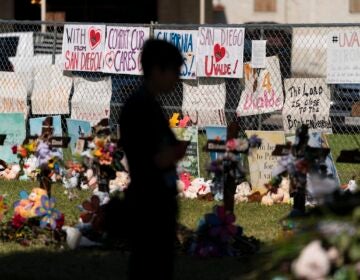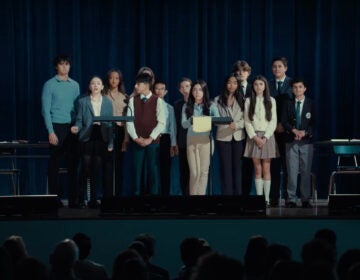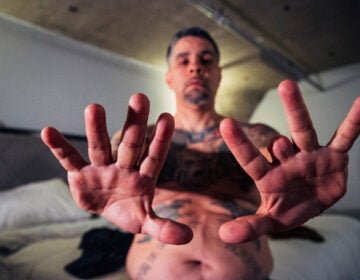10 years after Sandy Hook: One mother’s journey through grief and healing
Francine Wheeler’s son, Ben, was killed in the Sandy Hook Elementary School Shooting in Newtown, Connecticut on December 14, 2012. For Francine, it was the moment that changed
This story is from The Pulse, a weekly health and science podcast.
Find it on Apple Podcasts, Spotify, or wherever you get your podcasts.
On the doorframe of Francine Wheeler’s piano studio in her Newtown, Connecticut home, thin, hand-drawn lines mark the heights of her three children over time. But while two trails of lines keep crawling up the wall, the trail for Francine’s son Ben stops short. Ben’s last measurement is from November 11, 2012, about a month before he was killed in the Sandy Hook School Shooting.
Above Ben’s last recorded height, his older brother, Nate, then a fourth grader at Sandy Hook, drew a faint line and wrote, “would be here if he was still alive.”
“It makes you think about all that was lost,” Francine said. “I mean, he was 6 years, 3 months, and 2 days old when he died.”
Francine was my piano teacher growing up, and we’ve been family friends since I was 8 years old. A few weeks after what would have been Ben’s 16th birthday, I visited Francine to spend some time with her remembering Ben.
Ben’s family nickname was “crash, hop-along, hurt-himself-jawbreaker, shiner, split lip, gash-eye, nose-buster, faceplant Wheeler,” said Francine. He was known to run around the living room shrieking and pretending to be a tornado. But he was also an incredibly empathetic kid.
“He noticed other people’s sadness and would want to help them,” Francine said. “He was very loving. Most kids are, but then we forget about it, because our kids get older. But because he didn’t have that chance, that’s what I remember about him. The loving innocence of a 6-year-old.”
Hanging on the wall near Francine’s piano is a framed piece of paper divided into columns, each full of bright stickers. It’s Ben’s sticker chart, where Francine kept track of his goals. Some of Ben’s goals from the week he died were listening to words, using a tissue, sitting fully in a chair, which Francine says he had accomplished, and no hitting, licking, or biting.
Ben was getting better at the ‘no biting’ goal, but he did bite his dad’s arm about a week before he died. At the time, Francine’s husband, David, was not amused.
“But he has this little scar. And he loves that scar now,” Francine said. David calls it “a weird gift.”
“Oftentimes, when you lose somebody that young, you sort of go, ‘Was he really here? Did I really have him for 6 years?’” Francine said.
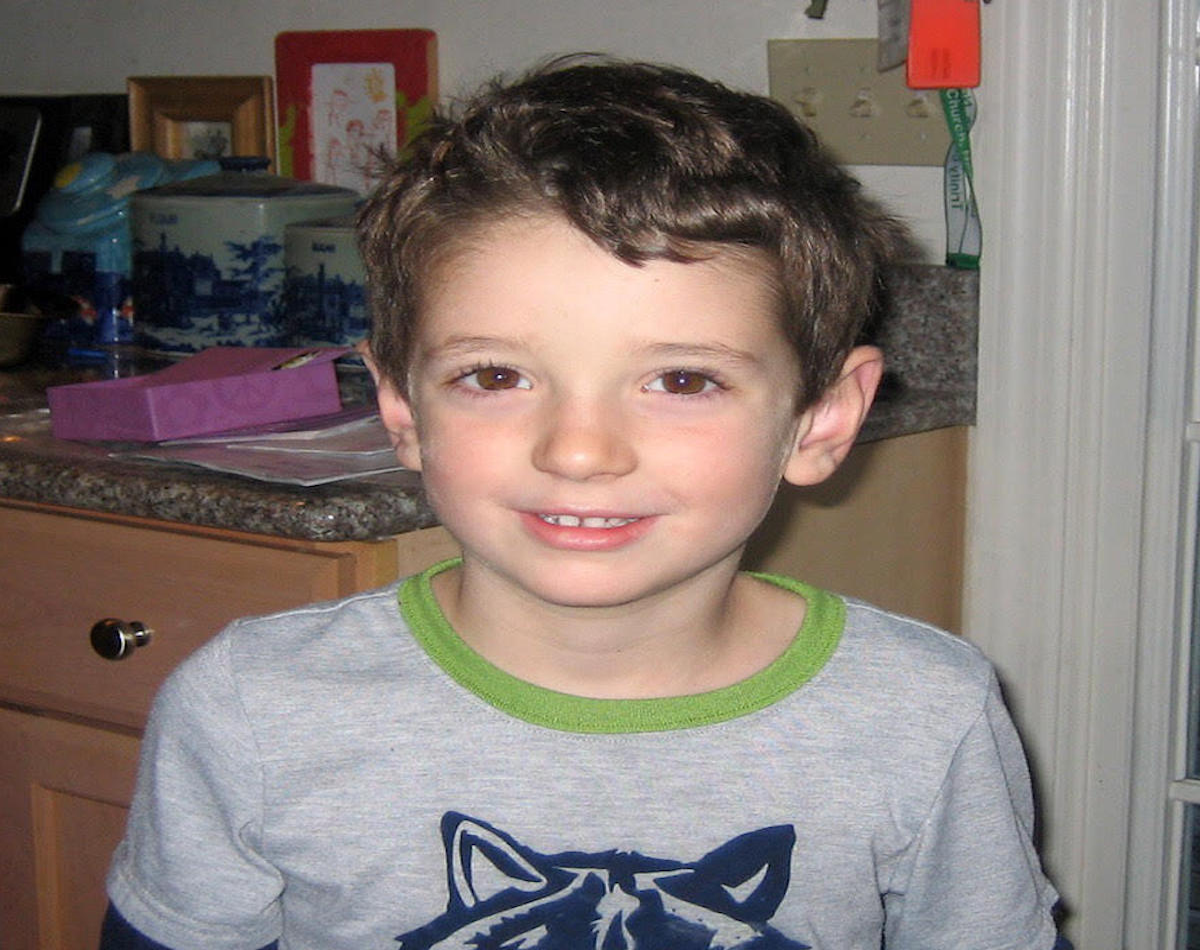
That’s why tangible reminders of Ben, the height lines, the sticker chart, and the bite mark, are so important to David and Francine.
Though reminders of Ben are a source of joy now, in the aftermath of the shooting, Francine couldn’t even allow herself to think about Ben.
“He died on a Friday, and by Saturday I was putting all his things in boxes in the attic because I couldn’t manage to look at them,” she said. “It was very difficult to even touch his backpack or any of his clothes.”
In the weeks after the shooting at Sandy Hook, I remember driving to the Wheelers’ house with my mom almost every day. We’d pass under a bridge covered with posters, candles, flowers and heaps of stuffed animals that grew soggy in the winter weather. Francine’s family alone received 5,500 stuffed animals — more than she could fit in her house. Francine asked a friend to redistribute them to hospitals around the state. It took two truck loads.
When things slowed down, Francine felt the enormity of her loss.
Subscribe to The Pulse
“I turned to David and I said, ‘I’m not gonna make it,’” Francine remembers. “And he said, ‘That’s not fair Fran, you can’t leave us. What about Nate? What about me?’ And I said, ‘I can’t see myself living through this.’ And I had this weird experience where I don’t know if it was my own brain, or if it really was Ben’s voice, but I heard Ben telling me he wanted me to live. And when he told me that, I made a deal with him. And I said, ‘If you help me figure out how to survive, I’ll do it.’”
After deciding to live, Francine threw herself into advocacy that spring. Francine and David met with members of Congress to speak about Ben and the need for tighter gun control measures. Francine was even invited to give President Barack Obama’s weekly address in place of the president. But when the U.S. Senate voted on new gun control laws in April 2013, every single measure failed — even expanded background checks.
By that summer, Francine knew she couldn’t keep speaking so publicly about Ben’s death. Though she believed in the causes she had been fighting for, she realized she had also been using advocacy to distract herself from her grief.
Francine decided she needed a way to reinvent herself and told her husband she wanted to have another baby.
“And he was like, ‘What?! We’re so old, you’re crazy,’” Francine remembers. She was 46 at the time and David was 55. “And I said, ‘No, but see, this is something that’s going to help me live and not die.’ And when I made that decision, I started to grieve.”
Since Ben’s murder, Francine had had friends in the house as much as possible, people to talk to in case trauma froze or overwhelmed her. So for Francine, grieving meant learning to be alone in an empty, quiet house. She also started going to the gym and working out to address the ways grief had taken root in her body.
Francine gave birth to a baby boy, Matthew, in 2014. Looking down at him for the first time, she thought of the moment two weeks after Ben died, when she had been standing in the kitchen and felt like she had heard Ben telling her to live. To Francine, Matthew’s life feels like a miracle. “I had Matthew at a very old age,” she said. “And that is such a gift, that I feel Ben gave me in a way. His name, Matthew, means ‘gift from God,’ and I feel that Matthew is a gift from God and from wherever we go.”
This December 14 will mark 10 years since Ben’s murder.
“He was 6; he would be 16. Ten years of life going on without him; it’s a substantial, significant number, and that’s its own special kind of hell,” Francine said.
Francine doesn’t know quite what to expect this year on the day of the tragedy. She is planning to do the things she always does to help herself, like having friends around. Francine, David, and Matthew will also be going away for a few days.
“It will probably be our choice to be very much in Christmas mode, and not make it about Ben, and not ignore Ben, but make it about Matthew’s experience and finding that joy, because we always do,” Francine said. “So, I might as well have joy while I’m dealing with this terrible grief.”
In fact, Francine says one of the biggest misconceptions about losing Ben is that she does not experience joy in the midst of her grief.
“People who have not experienced this kind of loss think we lie around in bed all day crying. And that’s just not how grief works. You laugh and grieve. You celebrate and grieve. You cry and grieve. You scream and grieve. But you also celebrate life,” she said.
Still, there are things that send Francine back to what she calls “the soul” of her grief, like Ben’s birthday, hearing buses drive by on the first day of school or bumping into a friend of Ben’s she has not seen since the tragedy.
Francine is also careful to distinguish between her grief and her trauma. While Francine’s grief ebbs and flows, her trauma responses happen at a moment’s notice and can be debilitating. When Francine saw the news about the school shooting in Uvalde, Texas last May, she spent a few days in bed, almost without registering it. She has learned to manage these episodes over time, like asking for help with Matthew, and those responses happen automatically too.
Francine also moves through her grief by keeping a daily gratitude journal. She’s grateful for the health of her family, that David works from home so he can help take care of Matthew, and for her morning cup of coffee.
“Coffee for me is kind of my morning ritual of, ‘I’ve got the gift of this day.’ Even if it’s a crappy day. I’ve got the gift of this day. I say to people all the time, ‘you don’t know if you have tomorrow.’ And I know it’s a cliche, but people don’t really think about that cliche,” she said.
Francine has always made sense of life through music. A few years after the tragedy, she started writing songs about her life in the wake of Ben’s death. The first song she wrote, “You Will Forget Him,” is about the importance of remembering Ben, even when it might be painful:
You won’t think of him when seasons change
Or when the school bus drives by
It won’t be in you
Cause that’s how you survive
“I wrote that song because people don’t have to live with the kind of significant loss of Ben that I do,” Francine said. “I’ll say to people, ‘I have three boys. I have two boys that are living, and here’s what they’re like. And I have this other boy who died when he was 6, and this is what he was like.’ And some people are like, ‘Oh no, please don’t tell me that. I don’t want to know, that’s too much.’ And I say, ‘No, you must. You must listen.’ Because he deserves that. Because his life matters too.”
One of Francine’s most cherished memories of Ben is from the morning that he died. She and Ben had just dropped off Nate at a book club that met before school. They had about 45 minutes before Ben needed to get dropped off, too, so Francine took Ben to Starbucks to get a treat. They sat beside each other at a small square table, Francine with her coffee and Ben with a brownie. Then Ben started telling Francine about what he wanted to be when he grew up.
“It wasn’t a lighthouse keeper anymore,” Francine said. “He wanted to be an architect.” Ben also told Francine he wanted to be a paleontologist, because that was what his older brother Nate wanted to be. “And then he told me that he loved Nate, and he would always be with Nate. And then he told me that he loved me. And I remember saying to him, it’s so nice to be here just the two of us. We never get a chance to do that.
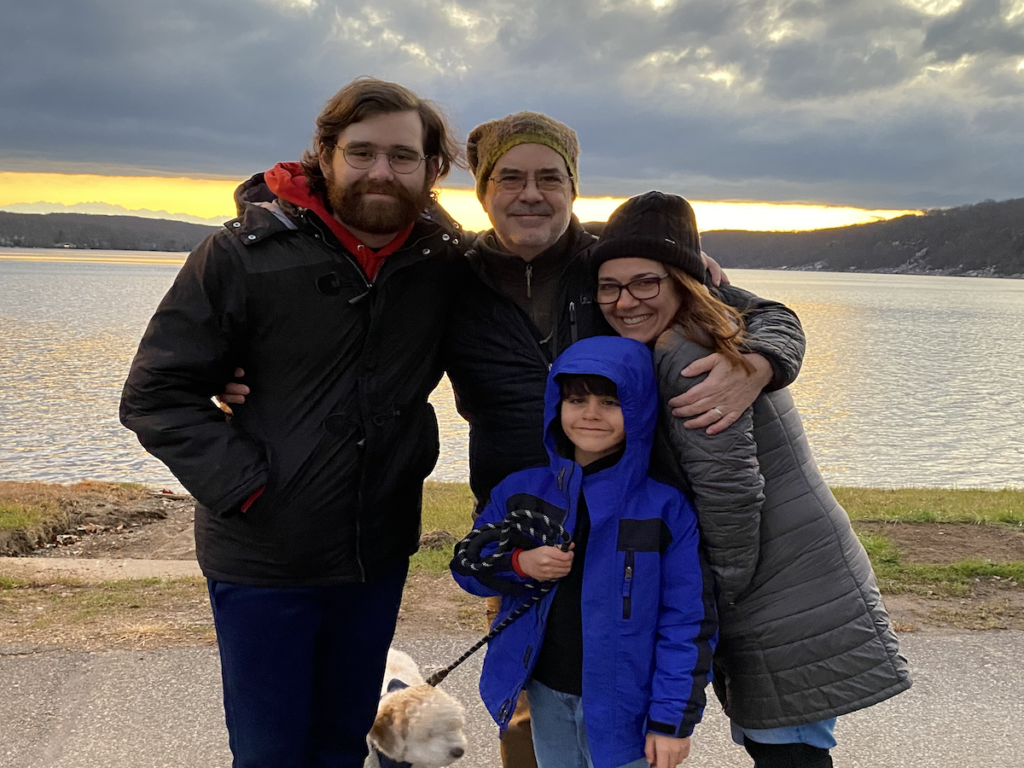
Because I had that moment, I get to keep that even though he’s gone. I get that forever, for as long as I’m breathing. And that to me is our goodbye. I never got to say goodbye to him. But that was our goodbye.”
Francine wrote eight more songs after “You Will Forget Him.” Over the past nine years, she’s transformed those songs into a play with music called, “Just Five Minutes,” a story about her grief, trauma, and survival following Ben’s murder. Francine is currently working with a team of artists and producers to film “Just Five Minutes,” which will stream in 2023.
WHYY is your source for fact-based, in-depth journalism and information. As a nonprofit organization, we rely on financial support from readers like you. Please give today.




